War has indeed become perpetual and peace no longer even a fleeting wish nor a distant memory. We have become habituated to the rumblings of war and the steady drum beat of propaganda about war’s necessity and the noble motives that inspire it. We will close hospitals. We will close schools. We will close libraries and museums. We will sell off our parklands and water supply. People will sleep on the streets and go hungry. The war machine will go on.
What are we to do? The following text is Part V of a broader analysis entitled War and the State: Business as Usual.
For Parts I-IV, click here
You can put a way the razor blade. There is a way out.
Step 1: Rid your brain of the nonsense you consider to be sacred truth.
Step 2: Look behind the looking glass.
Step 3: Take a step back.
Step 4: Accept your powerlessness, instead of denying it.
Step 5: Read history.
Step 6: Avoid non-rational statements.
Step 7: Think small
*
Step 1: Rid your brain of the nonsense you consider to be sacred truth:
1) The U.S. of A. is a democracy. It is not. It is an oligarchy.
2): Elections are a form of democracy. They aren’t. They are anti-democratic. They are a means for surrendering ones political power.
Government is a simple matter. Basically, it is a numbers game. The number of people who govern determines the nature and form of government. When one person governs we call it a monarchy. When political power is in the hands of a relative handful that is an oligarchy. In a democracy, the citizens themselves debate and legislate.
In the United States, there sit in the nation’s capital 535 legislators representing a population in excess of 300 million. That is roughly one voice per 600 thousand. Clearly that is not democracy. When we have representatives speaking on our behalf, we are not living in a democracy. In a democracy we speak for ourselves.
When we vote to have someone speak for us we are giving away our political voice. We are giving away our political power. By definition, we can never vote in a democratic form of government. When we vote we create a monarchy or an oligarchy. When each one of us taken individually exercises the political power we are currently giving away to our representatives, we will be living in a democracy.
Seeming vs. Being
Step 2: Look behind the looking glass.
We believe so strongly in the ideals we associate with our form of government that we have trained ourselves to ignore the discrepancy that exists between our beliefs about our government and the reality of what that government actually is. We have become accustomed to confounding myth with reality. We fail to recognize that those in power have a vested interest in our not seeing the truth.
“It can only be by blinding the understanding of man,” warns Paine, “and making him believe that government is some wonderful mysterious thing, that excessive revenues are obtained” (Paine, 375).
The American today is expected to bow to authority unquestioningly, even as he is told he has the freedom to do otherwise. He is told to trust those in power at the very moment they betray him. He is encouraged to participate in the affairs of public life while simultaneously being denied access to the necessary means and knowledge. He is living in a world that preaches openness and honesty while simultaneously insisting on the necessity of secrecy in matters of state.
He is living in a nation that preaches peace and democracy while sustaining an ever-increasing war budget, a nation that in the name of democracy supports the decimation of weaker countries for purposes of private gain. He is told that it is dangerous “out there,” where the enemy lurks, but safe “in here,” when in fact the enemy lies within.

The American is living in a world based on power, fear, deception, exploitation, and hypocrisy. Like a traumatized and abused child his natural response to such a situation is the response he learned in childhood — to believe in the good intentions of those who abuse him while retreating to a position of acquiescence, numbness, and indifference toward the outcome of events that dramatically impinge upon his well being and his very existence.
The political lie is ever present. It corrupts those who lie and those who believe the lie. We know we are being lied to, and yet we consistently pretend to believe and then are deflated when our belief, once again, proves unjustified. When we go to vote the next time, we believe all over again. We choose not to make the connection between the politician’s words at election time and his deeds the day after. We want to believe in the beneficence of those who govern.
And so we refuse to see. We shield our eyes the way we might when viewing a horror film, sometimes taking a brief glimpse through splayed fingers and then returning to the comfort of darkness. But the isolation and passivity lead to anxiety and feelings of powerlessness, a sense of foreboding from which we constantly seek escape via compulsive work, excessive drinking, mindless distraction. We become more and more disengaged, more and more disillusioned, more and more anxious about what is happening around us that we cannot control.
This same vague foreboding leads Americans to acquiesce to just about any government action that makes them feel safer. Torture—which had been consigned to a time of primitive barbarism—is currently openly acknowledged, debated, and accepted by many. Americans are even willing to see their basic civil rights abrogated, all in the hope of squelching the ever-present anxiety.
Americans are fearful and they are angry. Deep down they are angry with government/parent for lying to them and betraying them. But the anger rarely, if ever, is outwardly directed at the government. Instead, it is taken out on immigrants, foreigners, racial minorities, and enemies real or imagined.
Hence we have two realities to contend with. Reality one, false reality, the one before us, is a reality that feeds our denial. This is government as we wish it: governance that is benign, leaders who are honest and compassionate, leaders who have nothing but the common good in mind. Reality two is hidden. It lurks in the shadows. It is dark, sinister, frightening and beyond our control. This, in fact, is the government we live under, deeply troubling to contemplate.
Democracy in America?
Most Americans assume that they live in a democracy. They might see some disturbing trends they consider to be anti-democratic in nature, but they regard them as temporary, as surface phenomena that do not alter the form of government at its core. Sheldon Wolin has taken a step back and here is what he has come up with.
In Democracy Incorporated: Managed Democracy and the Specter of Inverted Totalitarianism (2008), Wolin offers a radically different perspective. He invokes the legacies of Hitler, Mussolini, and Stalin. These were men who used their personality and intellect to shape and dominate their countries. No aspect of life—civic, artistic, intellectual, religious, familial, or political—escaped their control. That control was total and crushing. Absolute, unquestioning submission was expected. Masses were organized and activated in support of the government. None of this is the case in the United States, of course, and yet … .
Wolin coined the term “inverted totalitarianism” to describe a form of government that in many ways achieves the goals of totalitarianism but by different, gentler means. Inverted totalitarianism is “driven by abstract totalizing powers, not by personal rule” (Wolin, 44). The leader is not the architect of the system. He is its product. He fulfills a pre-assigned role.
The system succeeds not by activating the masses but by doing just the opposite, “encouraging political disengagement” (ibid). “Democracy” is encouraged, touted, both domestically and overseas. To use Wolin’s terminology, it is “managed democracy,” “a political form in which governments are legitimated by elections that they have learned to control,” (ibid, 47) a form of government that attempts to keep alive the appearance of democracy while simultaneously defeating democracy’s primary purpose, self-government.
In managed democracy “free politics” are encouraged. Believing that in fact they have the government they want, people are lulled into a state of passivity and acquiescence, leaving the controlling powers to operate as they see fit to advance their particular interests. Democratic myths persist in the absence of true democratic practice, though democracy did have an early beginning in this country.
Our anti-democratic heritage
From a distance, viewed through the prism of critical thought, the actual government – not the imagined, wished for or mythic incarnation – we are living under is anything but democratic. In a letter written to his friend Gideon Granger in 1821, almost two hundred years ago, Thomas Jefferson saw it coming.
“When all government… in little as in great things, shall be drawn to Washington as the center of all power, it will render powerless the checks provided of one government on another and will become as venal and oppressive as the government from which we separated.”
A close reading of early American history reveals that in fact, the anti-democratic tendency of our current government is consistent with the intentions of the founders and predicted by those who were opposed to the ratification of the Constitution, and that institutions were put in place as a means of inhibiting the growth of democracy, not fostering it.

Although the United States at the end of the eighteenth century was an agrarian society – eighty to ninety percent of the population were small farmers – the men who wrote the Constitution and ran the government once it was in place were lawyers, men of finance, speculators, businessmen, large land holders. Thus, as it is today, the country was run by a relative handful of wealthy men who structured the government to suit their own needs at the expense of the rest of the population.
And further, one of the most powerful and determined elements in the country were speculators. To finance the war against Britain, money needed to be raised. Bonds were sold at the state and national level. Returning soldiers, who had purchased the bonds and were now desperate for cash, sold them at a fraction of their face value to raise money to survive. Speculators eagerly scooped up the bonds at a fraction of their face value and then demanded that they be paid interest in full.
The only way the speculators could be paid was for state governments to raise taxes, which is just what they did. The result was that the small farmers were faced with a tax burden that was even greater than what they had previously paid under British rule. They were defaulting on their mortgages. Their lands and livestock were being confiscated and sold off. They were being dispossessed. In response, protests sprang up around the country.
Does any of this sound familiar? It should. Isn’t this exactly what is happening today? Families are being dispossessed from their homes and sleeping in tents because they couldn’t keep up with rising mortgage payments. In response, there were protests around the country led by Occupy Wall Street.
To a degree, the invisible and the visible oligarchies have merged. We no longer have to search the darkened recesses to learn how government works. It is right before us, bright as day. The bankers who used to control things from behind the scenes are operating on the world stage for everyone to see. As Henry George so eloquently phrased it, “in high places sit those who do not pay to civic virtue even the compliment of hypocrisy.” (George, P. & P., 546).
What to do?
Step 3: Take a step back.
I would like to digress and momentarily shift the focus. It is a sunny, brisk day in early spring. The magnolia trees are in blossom. I am walking up Broadway at a leisurely pace, every so often stopping to look in a store window. As I am about to cross 92nd Street, something terrible occurs. A car turning the corner strikes a cyclist. The cyclist is dragged a few feet by the car. He lies bloody and motionless in the street. I am filled with anguish to the point of nausea. I feel as if I saw it coming and could have warned the driver or the cyclist. There was something I could have done, but did nothing. The blood and imagined suffering of the young man lying in the street become mine. The image haunts me for the rest of the day. That night I dream about it.
Now let’s replay the scene, with one significant variation. Everything stays the same. Except now I am two blocks away as the accident occurs. The frame of reference is much broader. The car and cyclist have become smaller objects in a larger picture. Most of my vista is made up of the facades of tall buildings. I cannot actually see the cyclist lying in the street. From two blocks away it is not clear exactly what has happened. The emotional impact is mild by comparison. I am drawn to reflecting upon the prospect of independent forces brought together at a certain instant. A second more or less and the event would not have even occurred. I have become philosophical.
Back to the question, “What are we to do?” I believe that the first thing we must do is to take a step back and reflect. This is why I offer the example of the bicycle accident witnessed at two different distances, proximate and distant. Seen from a distance, we see a larger picture. We can understand more clearly the dynamics that enter into the situation. From afar it is clear that the motorist was speeding.
The usual response when something goes wrong is “to do something.” But, says the American author Henry George,
“Right reason precedes right action.”
Social reform is not to be secured by noise and shouting; by complaints and denunciation; by the formation of parties, or the making of revolutions; but by the awakening of thought and the progress of ideas. Until there be correct thought, there cannot be right action; and when there is correct thought, right action will follow. (George, S.P., 242).
That thinking is a kind of doing seems an odd proposition, yet I believe it has merit. We are empowered when we understand things at the deepest level, when we are exposed to causal essence. Says Vandana Shiva (Shiva, 131-132),
“In order to effect change we need to adopt a structural and transformative analysis that addresses the underlying forces that form society.”
We need solid words with real meaning. We need the real events that have shaped our political reality.
The larger the frame of reference the more solid we feel in our bodies, in our world. If all we have is the latest headline and a few sound bites, — and the empty rhetoric that accompanies it — disconnected from any larger framework of meaning, we remain disoriented, scattered, confused and anxious. Things happen. Things get worse. We don’t understand why. We are trapped in the moment with disturbing thoughts.
As we enlarge our frame of reference, i.e., get beyond the headlines, look back in time from our present position to an earlier period, our foundation in reality becomes larger and more stable. We see connections. We see similarities. We see differences. We learn from both and are inspired to understand why things are the same and to discover alternatives we didn’t know we had.
It is only by knowing reality that we can change it. We know reality by applying our intellect to the events and conditions that surround us. We reach our own understanding of what it all means.
“People can only develop themselves … by finding within themselves the concepts and language to aptly and critically characterize their world—and then act to change it” (Dolbeare, 218).
Reactivity vs. Creativity
Here is another image we can learn from.
Imagine a pitcher filled with your favorite liquid, water, orange juice, sangria, beer. Now empty the pitcher and let it be filled with the totality of your political response. Political response is our reaction to civic events that occur around us, speeches, legislation, local, national and international violence that has a political basis. The pitcher filled with political response represents all of your political response, 100% of it.
Now let us imagine that the pitcher of political response is composed of two elements, reactivity and creativity. The two elements are inversely related. Increase one and you decrease the other. For most of us our political response is mostly if not exclusively reactive. There is the anguish, despair, outrage, resignation, perhaps a letter to the congressman perhaps participation in a public demonstration.
But if we want to change the world, make it a better place to live in for all of us, then we must get past the reactivity by creating the emotional distance I speak of above. As reactivity diminishes creativity will replace it and change will take place.
Conventional activism arises out of reactivity. Government advocates a policy or takes an action. As a consequence, I am angry, anxious, outraged, despondent, desperate. I feel driven to do something, on my own or in collaboration with others. I write a letter to my congressman. I join a protest in opposition. These emotions and these responses are both wholesome and appropriate. Yet they change nothing. They are simply reactive.
Reactivity is a form of denial. It enables us to deceive ourselves into thinking we are empowered when, in fact, we aren’t. When I react, I am playing by someone else’s rules. I am playing on his turf. Though I might, acting alone or with others, bring about some short-term beneficial result, government structures and power dynamics remain intact. Says Buckminster Fuller:
“You never change things by fighting the existing reality. To change something, build a new model that makes the existing model obsolete.”
Step 4: Our next step is to accept, rather than deny, our own individual powerlessness.
At any moment, there is great and unnecessary suffering at home and abroad. There is nothing we can do to stop it now, as it is happening.
Paradoxical as it may seem, accepting our powerlessness frees us from reactivity and in fact leads to empowerment. We are aware of the reality that surrounds us, but we are no longer enchained by our emotional response to events. In our imagination, we have discovered a new world and a new playing field. This vision is our inspiration. It is the world we are working to create. It is a vision of government that embraces the common good.
Step 5: To move into the future we need to look into our past.
We need to read history. We need to read history critically. As Peter Kuznick observes in his foreword to The Untold History of the United States,
“Historical understanding defines people’s very sense of what is thinkable and achievable.”
What we learn from history helps us make sense of current social conditions. When we read history we learn that not all government is the same and that different societies choose different solutions to the same problems. Ancient Athens and the Roman Republic were contemporary societies faced with similar problems: grain supply, land use, indebtedness. Yet they chose significantly different solutions.
The Italian city-states developed as small-scale separate and independent societies with an experimental approach to governance while simultaneously, to the north, large-scale autocratic empires were in the making. We, too, have choices. To see our choices, we need to free ourselves from the fixity of things as given.
Capitalism is not the problem
Step 6: Avoid non-rational statements
If — as stated above — government is a means for structuring the power dynamics in a given society, then it behooves us to understand the nature of power dynamics. To do that we have to clear away the dense fog of obscuritanism that characterizes much of the writing on history and government. Many of the writers have aligned themselves with those in power, those whose goal it is to confuse us rather than enlighten us.
We confuse ourselves when we engage in non-rational thinking, which is to say thinking that concepts can act. We can read examples like the following in all of our history books. There are even some examples in this essay.
“In the early 1700s, the Russian Empire took the offensive against Poland using military force and bribery.”
“France’s invasion of Russia in 1812 was a turning point in the Napoleonic Wars.”
Taken literally, such statements are mystifying. They create a white haze of ambiguity and mental distance. The statements are incomprehensible because they are non-rational. After all, what is the Russian Empire? Is it an amorphous form outlined on a map? Is it a certain physical landmass? Is it the people taken collectively? A form on a map cannot invade another country, nor can a landmass, nor could the entirety of the Russian population.
If we substitute Peter the Great for “the Russian Empire” and Napoleon for “France,” we enter the realm of rational discourse. Once our attention is directed to a particular individual and the actions he took, we can start thinking rationally about these events and their meaning for society. We can wonder what Peter was up to. Was he acting for personal reasons of power and glory, or did he have the best interests of his country at heart? Was violence the only solution? Should one man be given so much power?
Today we hear that capitalism or globalization or NAFTA are the sources of world misery. We are led to believe that concepts can act. We are made to feel powerless because we cannot identify the real levers of power that are bringing about the events we are reacting to. We are dealing in abstractions that have no grounding in concrete reality. Once we remember that only human beings are capable of agency, we start to feel grounded in our thinking. And when we keep our focus on human action and particular actors with great power we will understand our world better and we will be in a position to do something about fixing what is wrong.

The source of our misery is neither capitalism nor globalization. The source of our misery is P.A.I.P. (Power Addicts In Power). There is a small sub-set of humanity who have been with us from the beginning. They are addicted to power, the power to possess, the power to control, the power to kill, the power to lie. Like moths to a flame, these power addicts find their way to centralized power and take over, ruining our lives and threatening the survival of the human species. I am calling these power adicts homo malus.
In June of 2015, in a working class town in Paris, a mock trial was held in which Exxon Mobil was charged with deliberately withholding knowledge it had about the harm its company’s activities were causing to the environment. Climate activists revealed inside memos and reports showing that Exxon knew it was harming the climate but did nothing to change its course.
I think this is more than just an idle exercise. Such an event can have a powerful educational benefit. It can serve to generate political momentum. However, it is fundamentally flawed in its conception. As indicated above corporations can’t do anything. Only individual human beings can. Thus, to indict a company has no political meaning. It simply serves to perpetuate the Plexiglas shield that protects the people who run the company from being held accountable.
Suppose instead a subpoena was sent out for Rex Wayne Tillerson (currently Secretary of State) who happens to be the chairman, president, and CEO of Exxon Mobil Corporation. What would have been the effect if his name and his face were brought into this public forum? Here is someone we can hold accountable, someone who has the power to change what is being done to our planet. Now our focus is on people in power. And we can wonder if it is possible to set up a government in which people addicted to power can be denied the access they seek.
The Benefits Of Local Governance: Getting Small
Step 7: Thinking small.
Politics is about power. Personal power. As Max Weber points out,
“Anyone engaged in politics is striving for power.” If one says that “a question is a ‘political’ question, … what is meant in each case is that interests in the distribution, preservation, or transfer of power play a decisive role in answering that question.” (Weber, 311)
What we want to do is to set up a system of government in which political power is redirected so as to serve the common good.
Political power can respond to centrifugal forces leading to the center or to centripetal forces leading to the periphery. When power moves towards the center, a small number of governors will control government. When the area under governance is large and the number of governors is small, it is easy for small organized minorities to influence the governors. The military-industrial complex, for example can use its power to impose on those who govern and thus satisfy its selfish interests while subverting the wishes of everyone else.
As Gaetano Mosca points out,
“A hundred men acting uniformly in concert, with a common understanding, will triumph over a thousand men who are not in accord and can therefore be dealt with one by one.” (Mosca, 53)
In other words, a hundred men can sit down in a room and agree on a course of action. For a thousand men to find a room large enough and to find common ground is a lot harder.
When political power is dispersed over larger areas and extends to the periphery, more localized governments gain power. The areas under governance will be relatively small. It will be easier for the citizenry to get to know each other and organize. Larger numbers of people will have political power. The distances between those who govern and those who are governed are smaller. Matters are closer to hand. Let’s get small!
In 1776 the United States was comprised of thirteen states, each with a unique form of government. Some constitutions provided for a bill or rights — Virginia. Some didn’t. Some states had restrictive voting rights — Massachusetts. Some were more liberal. The thirteen states were independent governments, loosely united under the Articles of Confederation. There was no central power to speak of. Governments were accessible to the citizenry and likely to respond to their demands.
There were monetary issues that were among the most contentious in this period of American history. Should we use specie — i..e. gold and silver — as our means of exchange, or should we issue paper money. The wealthy elite who controlled the specie were opposed to paper money. The vast majority were in favor. The battles were fought at the state level.
In Rhode Island, the political establishment opposed paper money and proposed a statewide list of delegates who favored this position. Voters in East Greenwich held conventions and put up their own list. These candidates campaigned vigorously under the slogan “To Relieve the Distressed,” — i.e. by issuing paper money — and they prevailed. The first order of business for the newly elected legislature was to issue £100,000 in paper money and delay the due date for taxes that had been requisitioned by Congress in September of 1785.
In March of 1786, the Massachusetts state legislature imposed heavy taxes, with more than half of the revenue allocated to pay bondholders.1 Insurgents took to arms in protest over the taxes and were defeated. They then went to the polls, where they were victorious. With the resulting seventy-four percent turnover in the state House of Representatives, the farmers got the tax relief they sought. For the year 1787, the state government imposed no taxes at all.
Citizens of Massachusetts and New Hampshire came up with another strategy. Several townships resolved to send no representatives to their state’s legislature. Since the decisions being made were unfavorable to their cause, why send anyone? It was both a political strategy and a means of protesting a system they found inequitable. In Massachusetts, farmers refused to pay their taxes and took the additional step of closing many of the state’s courts.
These are examples of what an empowered citizenry can achieve when power is diffuse and localized. The primary reason the U.S. Constitution was put in place was to shut down such democratic success.
If these smaller, local forms of government were successful in getting their voices heard, why can’t we repeat their success? Why can’t we get small? In Part 6 we consider that very possibility and discover that what for many might be considered a utopian dream is actually a practical reality.
Above text is part IV of a six part essay.
For Parts I-IV, click here
Link to War and the State: Part 1
Link to War and the State: Part 2
Link to War and the State Part 3
Link to War and the State Part 4
1. War and the health of the State: What causes war
2. Federated governments: The Nation vs. the State
3. Origin of the State: Barbarians at the gate
4. End Game: War goes on
5. Critical Thinking: A bridge to the future
6. Deconstructing the State: Getting small
SOURCES
Benjamin Barber, Strong Democracy: Participatory Politics for a New Age.
Frank Barlow, The Feudal Kingdom on England 1042-1216.
Edward Bernays, Propaganda.
Ellen Brown, The Public Bank Solution: From Austerity to Prosperity.
Smedly Butler, War Is A Racket.
James Carroll, House of War.
Gearoid O Colmain, “The Weaponisation of the Refugee,” Dissident Voice, January 20, 2016.
Rob Cooper, “Iceland’s former Prime Minister found guilty over country’s 2008 financial crisis but will avoid jail,”Daily Mail, April 23, 2012.
C.S., “Constitution Society,” Andrew Jackson, July 10, 1832.
Deborah Davis, Katherine The Great.
Thomas J. DiLorenzo, The Real Lincoln.
M.I. Finley, The Portable Greek Historians.
F.P. The Federalist Papers. Ed. Clinton Rossiter.
Mark H. Gaffney: “9/11: The Evidence for Insider Trading,” May 25, 2016: ICH (Information Clearing House).
GPF (Global Policy Forum,) “War and Occupation in Iraq,” Chapter 2.
Ramachandra Guha, India After Gandhi.
Victor David Hanson, Carnage and Culture.
Chris Hedges, “The American Empire: Murder Inc.” Truthdig, January 3, 2016.
Georg Wilhelm Friedrich Hegel, The Philosophy of History (Dover, 1956).
J. Christopher Herold, The Age of Napoleon.
Karl Hess, Community.
Peter Hoy, “The World’s Biggest Fuel Consumer,” Forbes, June 5, 2008.
J.H. Huizinga, Dutch Civilization in the 17th Century.
Peter Koenig, “Towards a Foreign Imposed “Political Transition” in Syria?” Global Research, November 3, 2015.
John Macpherson (1899). Mental affections; an introduction to the study of insanity.
Patrick Martin, 16 April 2003, wsws.org.
Edgar Lee Masters, Lincoln The Man.
Gaetano Mosca, The Ruling Class.
Ralph Nader, “Uncontrollable — Pentagon and Corporate Contractors Too Big to Audit,” Dandelionsalad, March 18, 2016.
Thomas Naylor and William H. Willikmon, Downsizing the U.S.A.
Karl Popper, The Open Society And Its Enemies.
Simon Schama, The Embarrassment of Riches: An Interpretation of Dutch Culture in the Golden Age.
John Stauber and Sheldon Rampton, “Lies Damn Lies and the Public Relations Industry.” (Web)
Herbert J. Storing, The Anti-Federalist: Writings by the Opponents of the Constitution, edited by Herbert J. Storing.
Jay Syrmopoulus, October 15, 2015, “Iceland Just Jailed Dozens of Corrupt Bankers for 74 Years, The Opposite of What America Does.” Read more at http://thefreethoughtproject.com/icelands-banksters-sentenced-74-years-prison-prosecution-u-s/#UHP3qHr1WIAuRFSs.99.
“The Economic Value of Peace, 2016” (PDF) Institute for Economics and Peace.
Washington Blog, February 23, 2015 “ICH”(Information
Clearing House) http://www.informationclearinghouse.info/article41086.htm
Max Weber, Political Writings.
John W. Whitehead, March 29, 2016, “From Democracy to Pathocracy: The Rise of the Political Psychopath,”Intrepid Report, April 1, 2016.
Wikipedia, “Energy usage of the United States military.”
Wikiquote, Woodrow Wilson, Federal Reserve Act of 1913.
Sheldon Wolin, Democracy Incorporated: Managed Democracy and the Specter of Inverted Totalitarianism.
NOTE
1 War bonds had been issued by national and state governments as a means of funding the war effort. Returning soldiers, mostly small farmers, held bonds that they needed to liquidate to in order raise money for basic necessities. Speculators swooped in to buy up the bonds for as little as fifteen cents on the dollar, which they then wanted the government to redeem at full face value.
Arthur D. Robbins is the author of “Paradise Lost, Paradise Regained: The True Meaning of Democracy,” hailed by Ralph Nader as an “eye-opening, earth-shaking book,… a fresh, torrential shower of revealing insights and vibrant lessons we can use to pursue the blessings and pleasures of a just society through civic efforts that are not as difficult as we have been led to believe.” Visit http://acropolis-newyork.com to learn more.
 His threats to Iran and North Korea, the latter even invoking a possible US nuclear attack without, apparently, even being aware of the consequences, are the stuff of nightmares, indeed of the chilling film “The Day After.”
His threats to Iran and North Korea, the latter even invoking a possible US nuclear attack without, apparently, even being aware of the consequences, are the stuff of nightmares, indeed of the chilling film “The Day After.” 

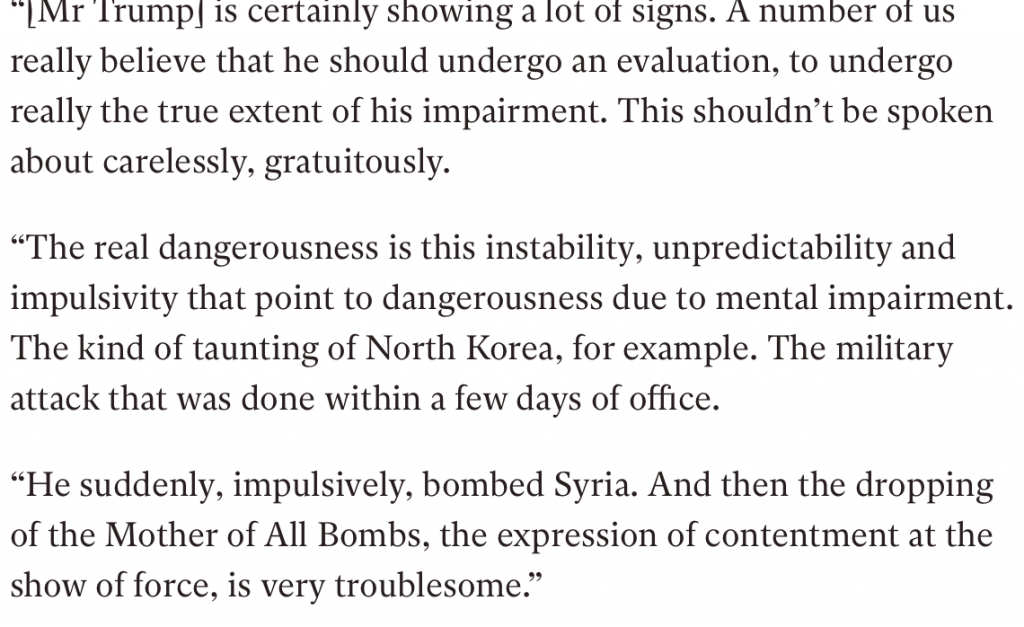

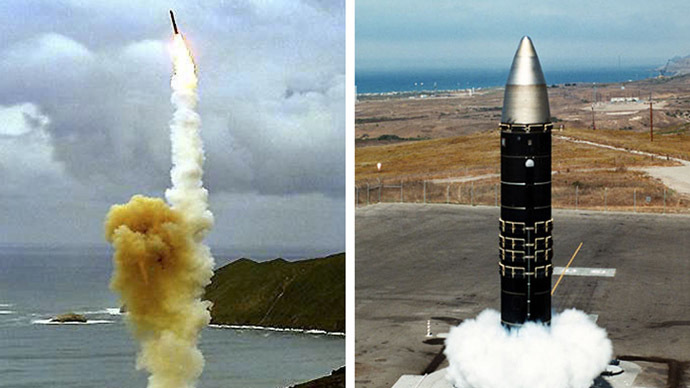
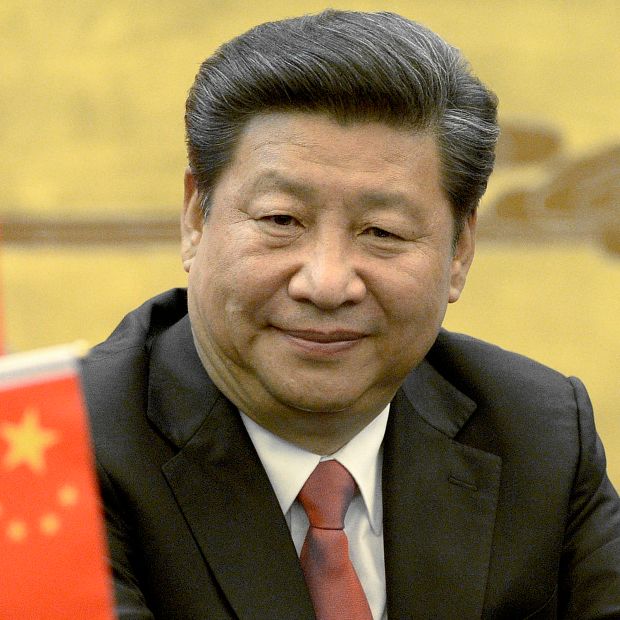

 Edward Bernays is considered the Father of American Propaganda. His writings on propaganda inspired Nazi Party leader Joseph Goebbels, Hitler’s Minister of Propaganda and Public Enlightenment to be really good at his job. One of Bernay’s most influential corporate “accomplishments” occurred in the mid- to late-1940s, when he was hired by ALCOA (the Aluminum Company of America) to orchestrate a public relations campaign to convince political leaders and the public that it would be good if ALCOA’s highly toxic by-product (fluoride salts) were added to the nation’s drinking water supplies under the guise of preventing tooth decay in children. (Google “
Edward Bernays is considered the Father of American Propaganda. His writings on propaganda inspired Nazi Party leader Joseph Goebbels, Hitler’s Minister of Propaganda and Public Enlightenment to be really good at his job. One of Bernay’s most influential corporate “accomplishments” occurred in the mid- to late-1940s, when he was hired by ALCOA (the Aluminum Company of America) to orchestrate a public relations campaign to convince political leaders and the public that it would be good if ALCOA’s highly toxic by-product (fluoride salts) were added to the nation’s drinking water supplies under the guise of preventing tooth decay in children. (Google “
 F
F
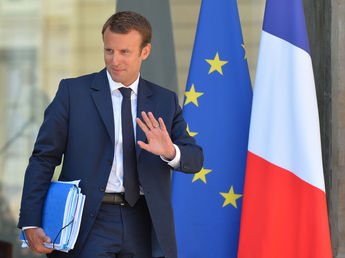


 Europeanist followers of collaboration with the Axis, as Marcel Deat, Jean Luchaire and Raymond De Becker, were usually former European federalists of socialism and felt that Hitler would create a transnational European New Order that would incorporate many of the pre-socialist ideals. The fact that the Axis was out to eradicate the national demarcation among nation-states in Europe – even in a barbaric way – for the benefit of a transnational Europe, constitutes for Europeanists, especially the leftwing, an objective leap forward. And, therefore, the Europeanists, even from the far left, had to work together to ensure the socialist transformation of tomorrow’s transnational New Order of Europe.
Europeanist followers of collaboration with the Axis, as Marcel Deat, Jean Luchaire and Raymond De Becker, were usually former European federalists of socialism and felt that Hitler would create a transnational European New Order that would incorporate many of the pre-socialist ideals. The fact that the Axis was out to eradicate the national demarcation among nation-states in Europe – even in a barbaric way – for the benefit of a transnational Europe, constitutes for Europeanists, especially the leftwing, an objective leap forward. And, therefore, the Europeanists, even from the far left, had to work together to ensure the socialist transformation of tomorrow’s transnational New Order of Europe.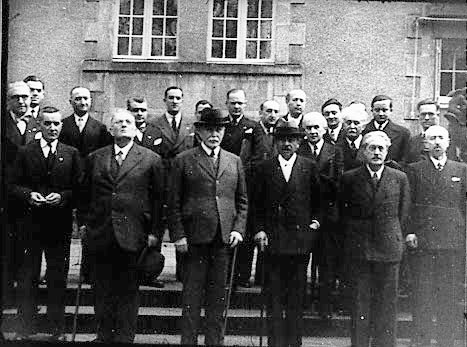
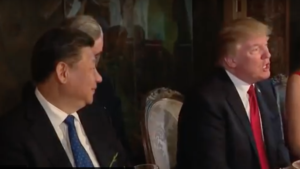

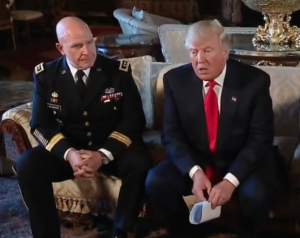

 These are the owners and operators of the largest banks. Representatives of these privately-owned banks are assigned to manage national central banks, like the Bank of England and the Federal Reserve, and international quasi-public institutions like the International Monetary Fund.
These are the owners and operators of the largest banks. Representatives of these privately-owned banks are assigned to manage national central banks, like the Bank of England and the Federal Reserve, and international quasi-public institutions like the International Monetary Fund.
 The last shred of integrity was removed from the system when gold/silver backing of paper money for international payments was eliminated in the early 1970s by the Nixon administration. At that point currency became purely fiat money. This was done at a time when Henry Kissinger, then and now an agent of the Rockefeller financial empire, was Nixon’s national security adviser.
The last shred of integrity was removed from the system when gold/silver backing of paper money for international payments was eliminated in the early 1970s by the Nixon administration. At that point currency became purely fiat money. This was done at a time when Henry Kissinger, then and now an agent of the Rockefeller financial empire, was Nixon’s national security adviser.





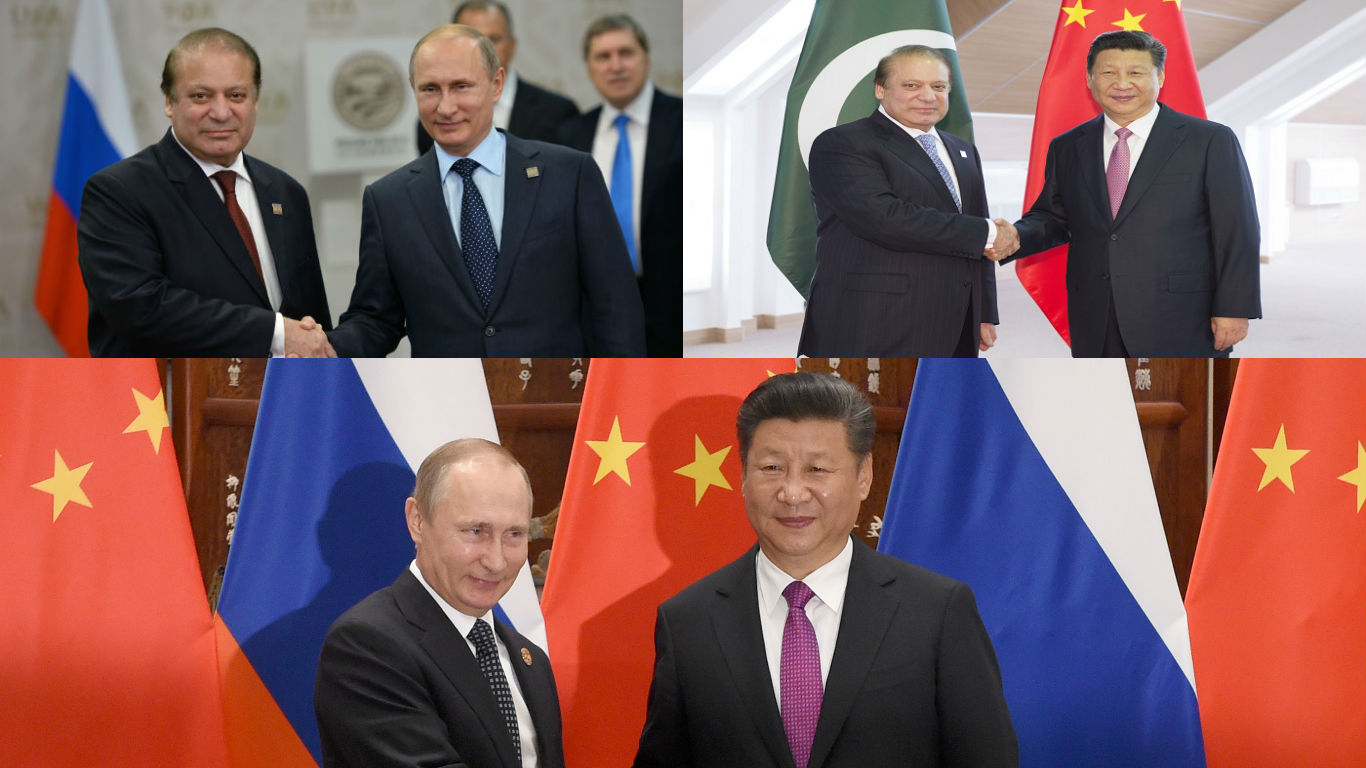




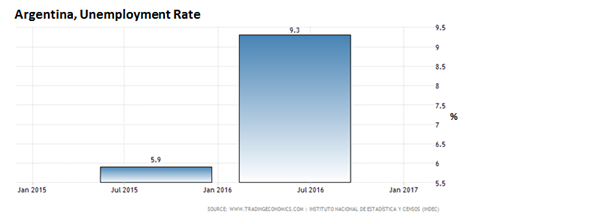
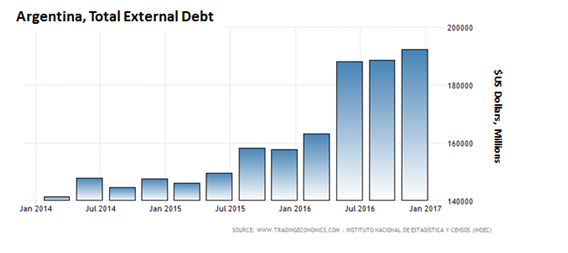

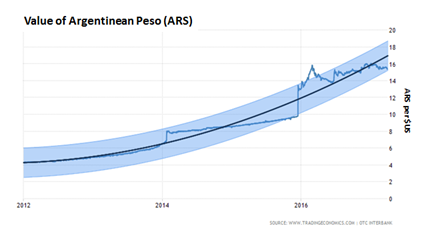



 After all, as long ago as 1997, the then still-Mayor of Istanbul Erdoğan publicly declared that his “guide is Islam,” adding “If I cannot live according to Islam, why live at all?” . . . and, to his and his followers’ mind, it stands to reason that every other citizen of the Republic of Turkey (or every other Turk, if you will) necessarily shares this opinion, basically turning the party faithful into true believers and opponents into apostates. And the government is now cracking down hard on the latter, for instance, detaining the prominent Communist agitator Abdurrahman Atalay on Wednesday, 19 April 2017. In all, a total of 19 individuals have been detained since the referendum vote on Sunday, 16 April. Subsequently, Istanbul’s Security Forces’ Directorate of the Anti-Terror Branch issued a statement indicating that “19 people have been apprehended and taken into custody“ on account of the fact that they “claim“ that the ‘Yes’ outcome of the referendum is not “legitimate,“ and were planning to use this as a pretext to “provoke . . . protest demonstrations” throughout the whole of the province, as well as other “unsanctioned“ gatherings and manifestations using “social media” in order to “incite” the people towards “hate, antagonism and enmity” to cause unrest and upheaval similar to the “Gezi protests of 2013“ to secure a “cancellation/repeat” of the referendum. Meanwhile, the
After all, as long ago as 1997, the then still-Mayor of Istanbul Erdoğan publicly declared that his “guide is Islam,” adding “If I cannot live according to Islam, why live at all?” . . . and, to his and his followers’ mind, it stands to reason that every other citizen of the Republic of Turkey (or every other Turk, if you will) necessarily shares this opinion, basically turning the party faithful into true believers and opponents into apostates. And the government is now cracking down hard on the latter, for instance, detaining the prominent Communist agitator Abdurrahman Atalay on Wednesday, 19 April 2017. In all, a total of 19 individuals have been detained since the referendum vote on Sunday, 16 April. Subsequently, Istanbul’s Security Forces’ Directorate of the Anti-Terror Branch issued a statement indicating that “19 people have been apprehended and taken into custody“ on account of the fact that they “claim“ that the ‘Yes’ outcome of the referendum is not “legitimate,“ and were planning to use this as a pretext to “provoke . . . protest demonstrations” throughout the whole of the province, as well as other “unsanctioned“ gatherings and manifestations using “social media” in order to “incite” the people towards “hate, antagonism and enmity” to cause unrest and upheaval similar to the “Gezi protests of 2013“ to secure a “cancellation/repeat” of the referendum. Meanwhile, the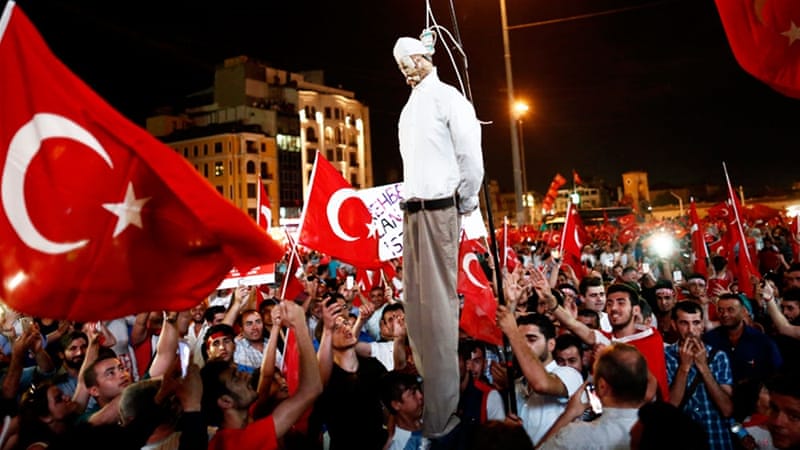









 There are two closely related dimensions to these causes. Because their lands have been occupied and their people massacred and marginalised, some of the victims of injustice have resorted to violence which in turn has reinforced Islamophobia. This is part of the explanation for the wave of terrorist acts that occurred in the sixties and seventies associated with Palestinians and those committed to their cause. At the root was Palestinian dispossession as a result of Israeli occupation and usurpation of their rights. The invasion and occupation of Iraq in 2003 by the US and Britain and the death and destruction that ensued is yet another major reason for the violence of the victims and their sympathisers in recent years, which has reinforced a negative perception of Muslims in the West.
There are two closely related dimensions to these causes. Because their lands have been occupied and their people massacred and marginalised, some of the victims of injustice have resorted to violence which in turn has reinforced Islamophobia. This is part of the explanation for the wave of terrorist acts that occurred in the sixties and seventies associated with Palestinians and those committed to their cause. At the root was Palestinian dispossession as a result of Israeli occupation and usurpation of their rights. The invasion and occupation of Iraq in 2003 by the US and Britain and the death and destruction that ensued is yet another major reason for the violence of the victims and their sympathisers in recent years, which has reinforced a negative perception of Muslims in the West.
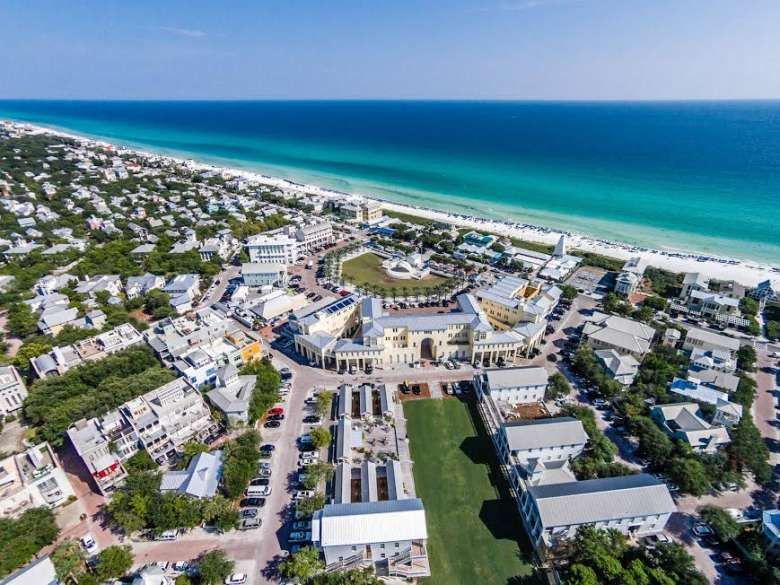
 If it turns out that global warming and ocean acidification are consequences of capitalism’s carbon-based energy system, the entire world could end up dead from the external costs of capitalism.
If it turns out that global warming and ocean acidification are consequences of capitalism’s carbon-based energy system, the entire world could end up dead from the external costs of capitalism.


 It is a given that AI will result in many benefits in every field from surgery to the auto industry, and to an estimated 700 fields according to an Oxford University study. Just as the internet has made possible the assistance of a physician in Cleveland providing live instructions and advice to a colleague carrying out surgery in the Philippines, similarly AI will result in such miracles. The issue however is the manner that corporations and government will use AI as leverage for labor policy. When the auto industry introduced robotics in the 1970s (MIT’s “Silver Arm”), auto workers reacted like Luddites in the early 19th century England because they realized that corporations used robotics as leverage to drive down wages and benefits, circumvent labor standards and policies impacting workers and their socioeconomic condition.
It is a given that AI will result in many benefits in every field from surgery to the auto industry, and to an estimated 700 fields according to an Oxford University study. Just as the internet has made possible the assistance of a physician in Cleveland providing live instructions and advice to a colleague carrying out surgery in the Philippines, similarly AI will result in such miracles. The issue however is the manner that corporations and government will use AI as leverage for labor policy. When the auto industry introduced robotics in the 1970s (MIT’s “Silver Arm”), auto workers reacted like Luddites in the early 19th century England because they realized that corporations used robotics as leverage to drive down wages and benefits, circumvent labor standards and policies impacting workers and their socioeconomic condition.
 Infophiles are already becoming more like the machines they use, like surreal characters in a Franz Kafka novel or a science fiction motion picture. They crave virtual reality more than empirical reality; their relationship with their cell phones or computers outlasts any other they have with human beings. If we accept the assumption that environment shapes human nature to a large degree as empiricist philosophers ever since John Locke argued, then we must accept that a techno-science environment of AI robots used by bio-engineered humans will result in robo-humans and a world where transhumanism will be the norm.
Infophiles are already becoming more like the machines they use, like surreal characters in a Franz Kafka novel or a science fiction motion picture. They crave virtual reality more than empirical reality; their relationship with their cell phones or computers outlasts any other they have with human beings. If we accept the assumption that environment shapes human nature to a large degree as empiricist philosophers ever since John Locke argued, then we must accept that a techno-science environment of AI robots used by bio-engineered humans will result in robo-humans and a world where transhumanism will be the norm.








 On Friday April 21st, Mattis said at a press conference,
On Friday April 21st, Mattis said at a press conference, 





























